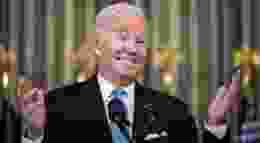
The current crisis in Ukraine has a very Cuban feel about it
In the year of the 60th anniversary of the Cuban Missile Crisis, Donald Forbes writes that the current escalation in Ukraine bears a striking resemblance to those that brought the world to the brink of nuclear war.
The Cuban missile crisis in 1962 was the closest the world has come to nuclear war. Soviet ships headed for Cuba loaded with missiles that would have established a Red Army forward base 90 miles off the coast of the United States. President John Kennedy invoked the Monroe Doctrine – named for President James Monroe who in 1823 forbade any foreign interference in America's backyard, more formally known as the Western Hemisphere, on pain of war.
Fingertips hovered over nuclear buttons in the White House and the Kremlin until President Nikita Khrushchev blinked and turned his flotilla for home.
Kennedy asserted the principle that big powers have inviolable spheres of influence whose broaching is intolerable. In the 19th century, the world's seas were the undisputed sphere of influence of the Royal navy.
The premise is simple: don't go there.
The collapse of the Soviet Union between 1989 and 1991 destroyed its sphere of influence in central and eastern Europe. Countries freed from Moscow's hand promptly turned to the West, joining NATO and the EU as a guarantee of their security against any Russian resurgence.
Ukraine, which voted overwhelmingly to leave the Russian Federation in 1991, finds itself isolated between the West and its institutions and Moscow which is determined to contain it within a Russian version of the Monroe Doctrine. It's an undeserved predicament for Ukraine which nominally has the same sovereign rights as any other independent country but is trapped by geopolitical reality. Stronger outside forces constrain its freedom of action.
Putin has 100,000 troops on Kiev's doorstep and more in neighbouring Belarus. He's using Ukraine to try to force the West to make the same strategic U-turn that Khrushchev performed 60 years ago or risk a conflict which like any war always carries some risk of unpredictable escalation.
He feels no more duty to Ukrainian sovereignty that Kennedy did to Cuba's.
Putin demands first of all that NATO agrees never to allow Ukraine to join the alliance or allow NATO missiles to be sited in the country. More than that, He wants all NATO forward forces to be removed from the Baltic states and Poland. These countries would keep their own militaries but NATO would not be allowed to deploy on their territories which it is obliged by treaty to do if they are attacked.
Acceding to the Putin Doctrine would make them more vulnerable to any future Russian power grab. Furthermore, it would effectively destroy NATO itself by allowing Putin to dictate its freedom of action.
His threat to Ukraine has brought to a head the question of NATO's purpose, which has simmered since the Soviet Union dissolved. NATO was founded as Western Europe's bulwark against Russian expansionism. This has not been an issue for three decades, but has now experienced a revival under Putin.
While seeking a new role for itself, NATO has steadily moved eastwards into Moscow's historic buffer zone, signing up the former Soviet satellites and giving them security guarantees of dubious value. The process has inevitably put Russia's back against a wall and forced it into action.
Can NATO actually keep the promises it made to countries which Russia still regards as belonging to its sphere of influence?
When Putin annexed Crimea from Ukraine in 2014, President Barack Obama decided not to intervene in case the Russians extended their provocation to the Baltic states and tested NATO's mettle.
Obama's hesitation then has returned to haunt President Biden now. Can he outstare Putin, daring him to invade Ukraine? Or must he recognise the truth of Russian security concerns that date back to tsarist times and do so from a position of weakness. Putin's army is on the spot; the US is far away and its NATO allies are militarily weak.
When the two sides met in Geneva earlier this month, Russian deputy foreign minister Sergei Ryabkov told the Americans Russia would never allow NATO to move into Ukraine and said bluntly: "We do not trust the other side." Trust was the key word. The Russians do not trust the West which has spent three decades encroaching on their borders during a period of Russian weakness which is now in the past.
Putin probably does not want to invade Ukraine unless he has to. But his determination to ensure its neutrality is total. In 1962, Kennedy's credibility was at stake. A year earlier, Khrushchev had humiliated him at their summit meeting in Vienna and it was imperative to hold firm.
That is where Putin's credibility is now. It can be taken for granted that he did not start this crisis without thinking several moves ahead, including the weakness of President Biden who has never recovered from his Afghanistan debacle.

Donald is a retired journalist who wrote for the Agence France-Presse, Associated Press, and Reuters. He was a chief correspondent in Poland, Hungary and Yugoslavia. Donald now regularly writes for The Conservative Woman.












